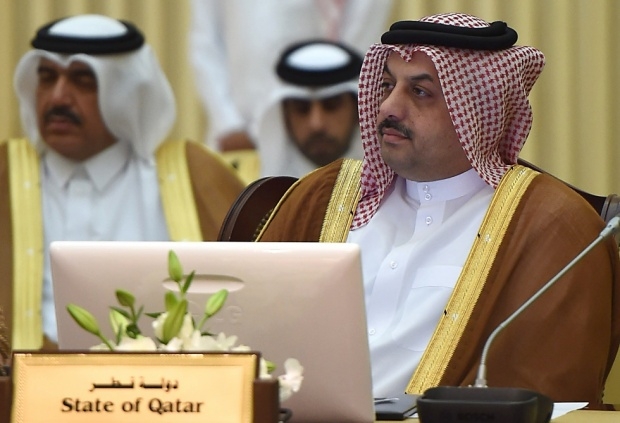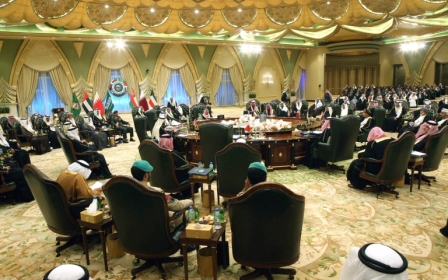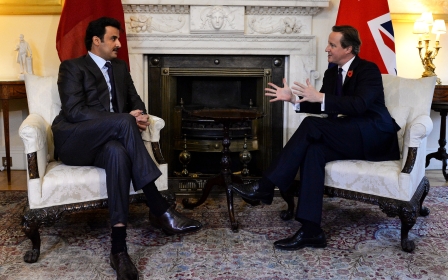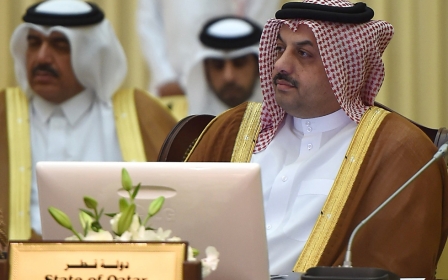Gulf Arab leaders seek to mend rift at Riyadh summit

Gulf leaders will meet in Saudi Arabia late on Sunday to try and resolve a diplomatic spat over support for Islamists that has damaged relations between Qatar and three other member-states of the Gulf Cooperation Council (GCC).
Saudi Arabia, the United Arab Emirates and Bahrain each withdrew their ambassadors to Qatar in May after accusing the government in Doha of meddling in their internal affairs and supporting the Muslim Brotherhood, which Qatar denies.
Bahrain’s King, Hamad bin Isa Al Khalifa, will lead a delegation attempting to “clear the air” ahead of a GCC summit scheduled to take place in Qatar in December, Saudi newspaper, Asharq Al-Awsat, quoted a senior Kuwaiti official as saying.
"There will be a meeting this evening. I hope they will reach a compromise on this dispute, that will enable the annual meeting to go forward," a Gulf Arab official told Reuters.
The UAE and Saudi Arabia have both named Egypt’s Muslim Brotherhood, senior members of whom sought sanctuary in Qatar after the military ousted president Mohammed Morsi last year, a terrorist organisation and regard political Islam as posing a challenge to their own systems of dynastic power.
In September Qatar asked several prominent Brotherhood members to leave the country following months of pressure on the Gulf Arab state from its neighbours to stop backing the Islamists.
But the dispute with Qatar has continued to simmer with the UAE boycotting Qatari-hosted sporting events as well as jailing dozens of civilians with ties to the Islamist group.
Last week a meeting between the six foreign ministers of the GCC scheduled to take place in Doha was mysteriously cancelled.
Sunday’s meeting in Riyadh, analysts say, could be the first sign of a possible rapprochement between the four Gulf nations.
The UAE and Qatar have long been rivals in key sectors, with ambitious national airline projects and competing desires to serve as a financial hub for the region.
They have increasingly found themselves at odds on security matters too, backing rival clients in battleground countries such as Libya and Egypt.
With the exception of Bahrain, the GCC states – whose members together hold about a third of the world's oil reserves – largely avoided the "Arab Spring" protests that swept the region in 2011. But the revolts caused the split between Saudi Arabia and Qatar to widen as they took different sides in the upheaval.
Strained relations between Saudi Arabia and Qatar date back to the early 1990s when border clashes left two dead. In 2002, the kingdom withdrew its ambassador to Doha over content aired on Al Jazeera.
New MEE newsletter: Jerusalem Dispatch
Sign up to get the latest insights and analysis on Israel-Palestine, alongside Turkey Unpacked and other MEE newsletters
Middle East Eye delivers independent and unrivalled coverage and analysis of the Middle East, North Africa and beyond. To learn more about republishing this content and the associated fees, please fill out this form. More about MEE can be found here.




